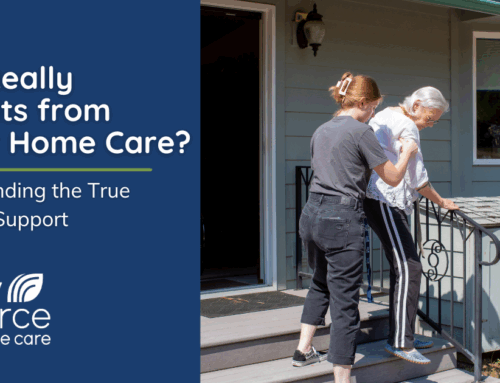What does it mean to “age well?” Does it refer only to one’s physical health and appearance or is there more to it than that? In this month’s Aging Today, the bimonthly newspaper of the American Society on Aging, Alex J. Bishop points out that while some see a “long-lived life” as a “blessing,” depending on their circumstances, others may see it as a “curse.”
For most of us, when we stick to a lifestyle of healthy eating, exercise, and regular doctor visits we will thrive into our 70’s, 80’s and even our 90’s. And as the possibilities expand for the prevention and treatment of age-related disease, even those with genetic or biologic links, we are faced with the question of how to remain psychologically and emotionally fit as well.
How does one manage to live for a very long time AND maintain a positive outlook, even with the losses in life that inevitably come to the elderly? It’s not a simple matter. According to the website of Suicide Awareness Voices of Education, the highest suicide rate in the U.S. is among men over 85 years old: 65 per 100,000 persons; and suicide rates among the elderly are highest for those who are divorced or widowed.
To find an answer to these questions, longevity researchers looked at certain regions of the world where people live the longest. These areas, called The Blue Zone, include Okinawa, Japan; Sardinia, Italy; Loma Linda, CA; Nicoya, Costa Rica; and Ikaria, Greece. There they discovered two essential elements considered to be fundamental to aging well both physically and psychologically: quality social connections and contemplation. According to Bishop, “it first helps to be surrounded by good people, especially community members, aging-service providers and practitioners who genuinely and compassionately care about the emotional security and well-being of the oldest-old;” and second, contemplation matters. “Solitary or meditative moments spent recalling, reflecting or coming to terms with one’s life experiences can be emotionally rewarding. This is particularly true when old-old adults are able to share meaningful stories, relive personal achievements or pass along secret advice to those who are willing to listen.”
This latest research challenges us to add to eating well and exercising, a third ingredient in the longevity recipe; and that is to live a meaningful life. And according to the research, to live a meaningful life requires both emotionally gratifying social groups that “bolster psychological well-being through social connections that ease the worries and fears generated by a long life,” and the type of quiet contemplation that helps us to discover meaning in our lives.
The Blue Zones offers an applied model for structuring similar community-based networks to help people live longer, healthier and more meaningful lives. If they can do it in Loma Linda, CA, then perhaps here in the Western Washington Region, where we have a history of innovative approaches to aging well, our own Blue Zone community may not be far behind.






